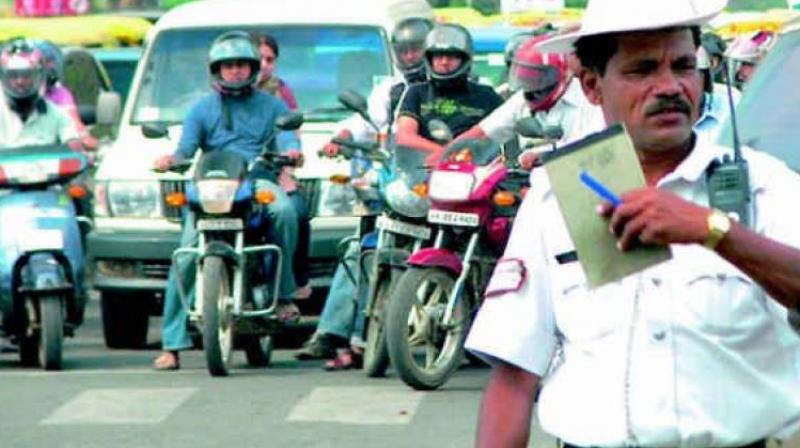Traffic cops burdened, we need land transport authority'
The cameras at the signals record lots of data and are fully controllable from the command centre.

The Bengaluru Traffic Police was the first in the country to become fully digital. The old system of relying on paper records was done away with and officers were equipped with hand-held devices for documenting and fining violators. A reasonably sound base was laid in cooperation with the transport department, which also opted for digitisation of its vehicle ownership records. All of this paid off handsomely. The collection of fines since the launch of the BTRAC programme has been at least 20 times the cost of creating all this technology, and some benefits from this have even flowed to other cities in the state. And with the expertise gained, the police became confident enough to appoint officers with IT skills in leadership roles at the Traffic Management Centre.
But there was less progress on another front, traffic management. Strictly speaking, this is not the core expertise of the traffic police, and should have been handed to a Land Transport Authority like in other large cities around the world. Many traffic police commissioners were keen on this, but it never happened, but we will be forced to take this step one day. There is plenty of data available to strengthen traffic regulation. The cameras at the signals record lots of data and are fully controllable from the command centre. There is plenty of accident data on file too, and tons of jams to review and understand. But what the police lack is manpower to analyse all this.
Unfortunately, it's not easy to hire technical competence in the workforce, because the hierarchy of a police system is sometimes at odds with the more consultative and analytical style of an IT operation. This can be overcome, of course, but only over a sustained period of committed effort.
About a year- and -a -half ago, a first attempt to overcome some of this was begun. A visulatisation platform for traffic signals was built, and a light weight data collection mechanism was identified to capture data from each signal every few months. If this is made operational, it could lead to routine review of signal management, and help improve traffic flow in the city.
The police were right to try to improve their in-house competence rather than outsource their work, thanks to the early leaders of BTRAC and that is still the right path to take. To keep improving on this, however, the investments made in hardware need to be complemented by much stronger investments in analytics and data-based decision making.

